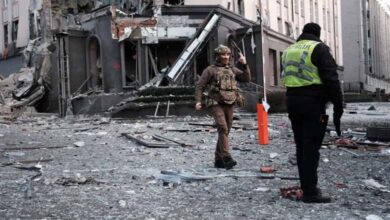Turkey – is in the throes of a currency crisis

Sporadic protests have erupted across Turkey and opposition parties have called for a series of rallies calling for a change of government after the collapse of the Turkish lira last week.
- Turkey : $128 billion waste opens corruption files for Erdogan’s party
- Erdogan exploits campaign against France to benefit his political interests
The latest week of unrest follows months of deteriorating economic conditions for Turkish citizens. The currency lost more than 45% of its value this year, and nearly 20% last week alone, continuing its downward trend on Tuesday.
Economists contend that President Recep Tayyip Erdogan’s insistence on guiding monetary policy and committing to low-interest rates drains confidence in the Turkish currency and his government’s monetary policies.
Clear crisis and demonstrations
The queues at bakery stalls and gas stations; farmers default on loans; marches in the streets are confirming that signs of economic distress in Turkey are very clear, as the lira continues its astonishing slide
Erdogan interventions
Economists have linked the currency crisis to President Recep Tayyip Erdogan’s direct intervention in monetary policy and his determination to lower interest rates.
The latest currency collapse came after Erdogan gave a speech last week declaring his determination to keep interest rates low as a way to boost economic growth. He reiterated his opposition to raising prices again in statements to reporters aboard his plane as he returned from a visit to Turkmenistan on Monday.
He told reporters: “I have never advocated raising interest rates, neither now nor in the future, and I will not defend them”. “I will never give up on this”.
Opposition protests and anger
There is public anger among the opposition, which is unusual for a state where only officially permitted demonstrations are permitted, and television channels and major newspapers follow the government line.
Dozens were arrested for joining the street protests. Police arrested 70 people in several districts of Istanbul last Wednesday, who protested against the government’s management of the economy after a record drop in the lira the day before.
The Progressive Trade Union Federation issued a sharp statement Wednesday, saying: “That’s enough.. We want to cover our expenses”, “Unemployment, rising living costs, rising prices, and bills knock our backs”.
According to the New York Times, Nakla Sasak, an 80-year-old retired bank employee returning home with a grocery bag, said she was living on credit cards.
She said: “Our purchasing power has declined – our money is no longer worth”.
Erdogan’s allies rise up
Last week, Devlet Bahceli, the leader of the Nationalist Movement Party, Erdogan’s political ally, said that Erdogan would not call an election until it is set for June 2023. “Meanwhile, Erdogan has stepped up pressure on his opponents by detaining Metin Gorkan, a military and political analyst and prominent member of the emerging Deva opposition party, on charges of espionage”.
“Erdogan promised that low interest rates would help kick-start the economy in three to six months, but economists said they did not trust his policies at this point”.
Stock shortage
Global Source Partners investment analyst Attila Yesilada said: “I don’t think he enjoys the confidence of the nation anymore”. He added: “There is an urgent problem of increasing poverty and the wheels of the economy are stopping”.
Analyst Yesilada said: “Shortages are apparent in all market products, even in imported medicines and medical equipment, and even in bakeries”.
The loaf of bread is still sold for 2.5 pounds, or about 20 cents, he said, but bakeries complain it costs around 4 pounds per loaf. “They will close the bakeries soon, and after that we will witness bread riots”, he said.












